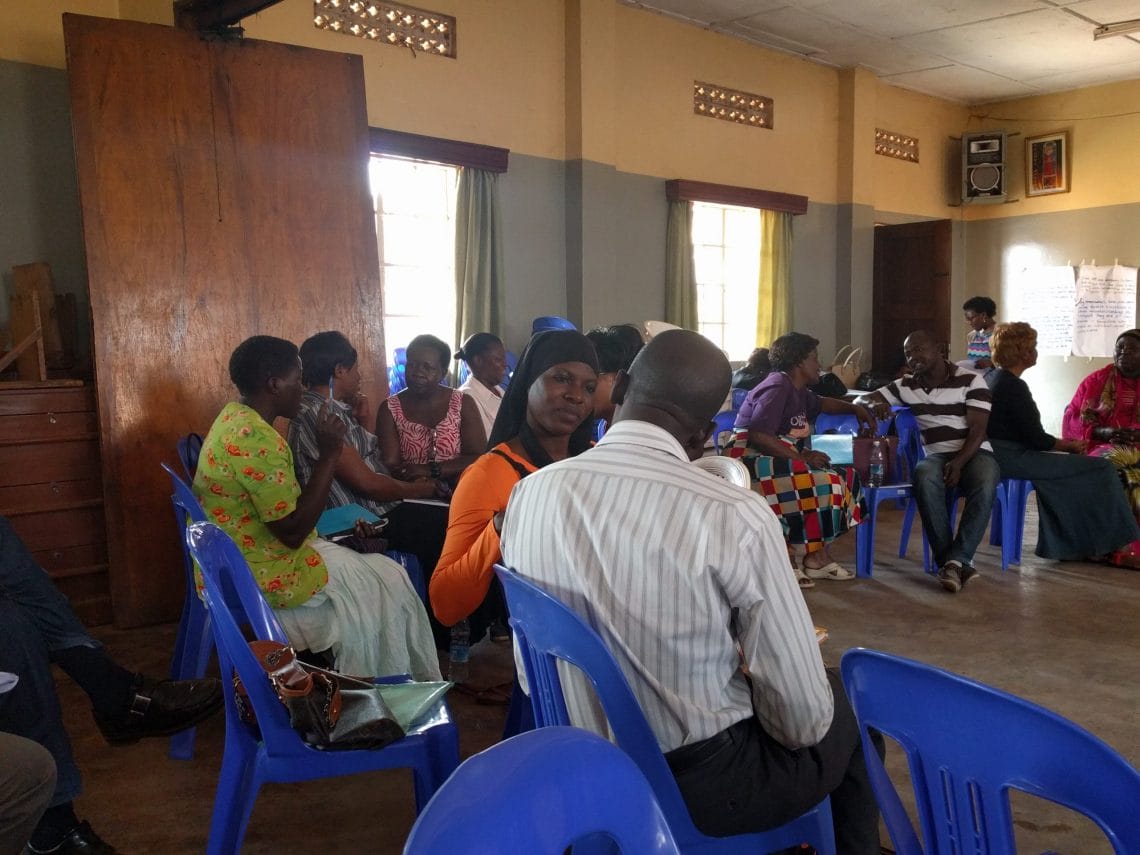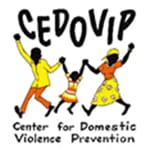Strengthening Perspective-Taking Among Couples to Reduce Intimate Partner Violence In Uganda
HIGHLIGHTS
- Millions of women around the world experience violence—whether physical, sexual, economic, psychological, or a combination of these—from current or former partners.
- We partnered with two organizations in Uganda to develop a relationship game to strengthen perspective-taking skills in couples as well as tools for community advocates to intervene.
- Raising Voices has since incorporated the game into the SASA! program toolkit, which is used globally to prevent violence against women.
The Challenge
In Uganda, more than half of women report experiencing physical and/or sexual intimate partner violence (IPV) over the course of their lifetime. The work of two organizations, Raising Voices and The Center for Domestic Violence Prevention (CEDOVIP), focuses on addressing stereotypical gender norms and existing power structures by mobilizing communities to prevent and respond to violence against women.
Raising Voices and CEDOVIP use SASA!, a toolkit developed by Raising Voices that is used by activists in more than 20 countries and 60 organizations to explore and shift gendered power dynamics between women and men. Through a partnership with Raising Voices, we developed new strategies to supplement the SASA! program using behavioral science, designing additional community activities informed by disciplines not commonly used in IPV prevention.
Our Approach
To understand the behavioral factors that could lead to violence in Ugandan households, we conducted 25 interviews with community activists and community members, four focus groups with men and women, and observed community activities and trainings. This research revealed a number of factors that could influence violence in the household, including perceptions of faithfulness to a partner, perceptions of IPV, and male and relationship dynamics—specifically, the ways disparate household roles automatically contribute to everyday situations escalating to violence. Based on these insights and through conversations with Raising Voices and CEDOVIP about what was best addressed by a behaviorally informed intervention, we designed and user tested two interventions.
- The first intervention was a relationship game aimed at promoting self-disclosure between partners to build their empathy and perspective-taking skills, and help partners understand each others’ day-to-day.
- The second design aimed to equip community activists with new tools to help couples disrupt automatic patterns in their interactions, and to help them communicate and manage aggression.
Results
We received positive responses from couples and community activists to the relationship game and the cognitive control training, and used their feedback to refine these designs. Raising Voices and CEDOVIP began using the relationship game in Kampala, Uganda, and integrated it into their SASA! toolkit so that activists across the world could also use the game in their work.
In 2019, Raising Voices updated their SASA! toolkit based on lessons from over 10 years of implementation, including our partnership. The new toolkit is called SASA! Together. In their revision of the program, Raising Voices has expanded and adapted the game we designed together so that couples, families, and communities can benefit from its impacts.
Takeaway
Many people, organizations, and programs around the world are making strides in reducing intimate partner violence. Applying insights about human behavior and utilizing skills such as perspective-taking—found in the relationship game—are strategies to maximize effectiveness and improve the lives of women and girls globally.
As SASA! Together rolls out and is more widely adopted, these insights will reach families and communities through Raising Voice’s global network. This work is a good example of how a partnership can have impact even after our formal engagement ends. We’re excited about the way Raising Voices took the behaviorally informed relationship game and adapted and expanded it to reach more people, scaling an innovative behavioral approach to reducing intimate partner violence.
Interested in our work applying behavioral science to global health? Email gh@ideas42.org or tweet at @ideas42 to join the conversation.
Partners










